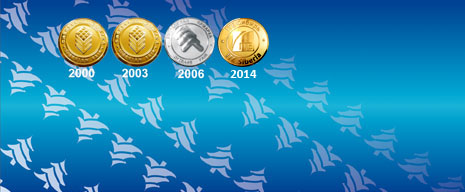 |
 |
Teachers council by correspondence
Case-technology and its use on lessons of history
Origin, peculiarities and tasks of case study technologies are considered in details, case study contents, different types of work with this technology are described, a role of a teacher is shown in the work with case study technologies. Steps of work with case studies on the history lessons are indicated case sources: statistical materials; analysis of scientific articles, monographs, scientific reports on a particular problem; Internet resources; fiction and journalism.
Thematic Activities of After-hour Activities in Physics to Implement the Requirements of the Federal State Educational Standards
The Article is devoted to the description of the experience of the organization of extracurricular activities in physics. It determines the significance of extracurricular activities for the formation of the motive for learning, cognitive interest and, as a consequence, the formation of cognitive actions of a generalized nature. It is said about the place of extracurricular activities in the implementation of the second generation standard.
Interschool Communities as a Factor of Realization of Professional Standard of the Educator
The article deals with the problem of the implementation of the professional educational standard on the basis of the interaction of interschool communities, promoting the exit of teachers to the intersubject and metasubject levels of professional communication, reveals the role of the integration of teachers in the implementation of innovative approaches.
Between the past and the future: traditions and innovations in the school for children with hearing problems
Correctional pedagogy has experienced many crises and discoveries, difficulties and problems in the course of its development. The national history of the development of this field of pedagogy is replete with examples of asceticism and scientific breakthroughs, various practical implementation of scientific ideas. Despite the remoteness from the federal center, the Siberian correctional school has traditionally developed in step with the times, replenishing the methodological knowledge from the primary source — scientific ideas and recommendations of famous scientists.
Psychological Competence of a Teacher in Communication
Communication in the modern psychological literature is presented in various sometimes contradictory definitions. Well-established is a fact of development of a personality in a society. Pedagogical communication influences the personal becoming and development of a child, and it means, that specific requirements are set to it. Teacher’s ability to manage his own temper is a key and allows to make a communication much more effective: bring new sense, come to mutual understanding and constructive solution of a pedagogical situation or a conflict.
Educating of Junior Schoolchildren to Creation of Text-reasoning in the Process of Raising and Decision of Orthographic Tasks
Teaching younger students the proper letter is conditioned not only by knowledge of spelling rules, but also the ability to use them in practical activity that forms the basis of a General method of formulating and solving a spelling problem. However, in school practice remains significant in the organization of the spelling work in class it is the student mastering the rules, which is then reduced them to writing, although problems in choosing certain letters appear directly in the process of writing words, sentences, text.
The Conditions for Reading Texts in the Learning Process
This article deals with reading text as a sense-carrier. Such an arrangement emphasizes the actuality of the problem of meaning changing in today's education: from the scientific needs of society only in the consumption of knowledge to comprehend meanings, the development of one's own attitude to content. The author after M. M. Bahtin emphasizes the dialogic nature of the text reading process and introduces the concept of "counter text" as a certain reflector of the reader's subjective positions.
Learning to Read Globally in the Primary School for the «English-Focus 2–4» Training and Methodological Complex
This article is devoted to the comparison of the existing methods of teaching primary school students to read in English. There are 2 widespread methods — a traditional one (when students learn the rules of reading) and the whole-word one (when students read words as a whole unit). The article states the advantages and disadvantages of these methods, concentrating on the psychological characteristics of primary school students. The author comes to the conclusion, that the only right way is to combine these methods, as it was done in Spotlight 2–4.
Some of the Learning Strategies that Empower Teaching English with Letterland
The article focuses on the original technology of the author that can empower teaching English with Letterland. For many years educators in English-speaking countries rejected traditional teaching of phonics, believing that because English spelling is so irregular, to give priority to teaching letter sounds was too difficult and confusing. It required too much rote learning, it was unpopular and boring for 5–7 year-olds, and worse, it gave them a distaste for reading.
Formation of Cognitive Actions of Schoolchildren Through the Creation of Geographical Images
The main problem considered in this article is the development of cognitive universal educational activities. The relevance of the topic is related to the necessity for students to develop skills in working with various types of information, the ability for analyzing and transforming it in conditions of rapid knowledge’s updating. This is an essential condition for maintaining competitiveness in the labor marketing the information society. The author proposes an approach to the development of cognitive universal educational activities through the formation of geographical images.
- « первая
- ‹ предыдущая
- 1
- 2
- 3
- 4
- 5
- 6
- 7
- 8
- 9
- …
- следующая ›
- последняя »
Сайт поддерживается в Новосибирском институте повышения квалификации и переподготовки работников образования и является участником Новосибирской открытой образовательной сети